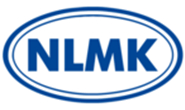Market Segment

January 27, 2021
NLMK Sues USS for $100M in Damages Over Section 232 Tariffs
Written by Michael Cowden
NLMK USA has sued U.S. Steel for at least $100 million to recoup Section 232 tariffs it claims were unjustly levied against it because of a “deception” perpetrated by the integrated steelmaker against the Commerce Department.
In addition, the U.S. subsidiary of NLMK Group–Russia’s largest steelmaker–seeks a jury trial, additional damages to be determined at trial, pre-judgement interest, as well as compensation for attorney fees and other costs.
The lawsuit, filed in the Court of Common Pleas of Allegheny County, Pa.–where U.S. Steel is headquartered–focuses on steel slabs, a semi-finished product used to make steel sheet.
The Basics
U.S. Steel “lobbied” the Trump administration for Section 232 tariffs in an effort to “hobble competitors,” but was stymied when Commerce allowed businesses to apply for exemptions for products not made in the U.S. or not made in sufficient quantities, NLMK claims.![]()
The integrated steelmaker then turned its attention to the exemption process, the structure of which guaranteed that domestic mills would have the last word, the company said.
NLMK contends that its inability to secure enough tariff-free slabs to supply its mills–one in Portage, Ind., and another in Farrell, Pa.–forced it to shelve planned capital investment of $680 million in its U.S. operations. Inability to secure cost-competitive slabs has also kept it from benefitting from “the recent steel market rally.”
Steel Market Update’s average hot-rolled coil price is $1,140 per ton ($57/cwt), its highest reading ever and up 159% from a 2020 low of $440 per ton recorded on Aug. 11.
NLMK also said it had been compelled to cancel customer contracts because it does not have a reliable source of slabs and that it has had to subject 550 steelworkers in western Pennsylvania to “rolling” layoffs for the same reason.
U.S. Steel denied the allegations in NLMK’s complaint.
“U.S. Steel does not provide the Department of Commerce false information,” the company said. “We objected to NLMK’s exclusion requests based on our ability to mine, melt and pour steel slabs in the USA–which we currently do and could do much more with idled blast furnaces in Michigan and Illinois.
“Other domestic steelmakers made similar objections. The Department of Commerce–not U.S. Steel–rightfully denied NLMK’s repeated requests,” it added.
U.S. Steel in 2019 announced plans to indefinitely idle ironmaking, steelmaking and hot strip mill operations at its Great Lakes Works near Detroit. It is running only one of two blast furnaces at its Granite City Works in southern Illinois, a company spokeswoman said.
The Details
NLMK operates an electric-arc furnace and rolling mill in Portage and a slab re-rolling operation in Farrell. The Indiana mill makes 8-inch slabs, but not in sufficient quantity to meet all NLMK’s internal needs. And NLMK relies on imports for 10-inch slabs, the company said.
NLMK sought more than 160 exclusions to Section 232 tariffs of 25% for the 8- and 10-inch slabs that it typically imports from its parent company in Russia or from Brazil, which is subject to a Section 232 quota rather than to a tariff.
Section 232 tariffs were rolled out in 2018 by the administration of former President Donald Trump.
All those exclusion requests were denied by the Commerce Department because it was subject to a “pattern of misrepresentation and deception” carried out by U.S. Steel, NLMK claimed.
“Having failed to obtain the tariff regime it wanted, U.S. Steel hatched a scheme to prevent its competitors from obtaining the tariff exemptions to which they were plainly entitled,” the company said.
One example, according to NLMK: U.S. Steel told Commerce that it could furnish 10-inch slab to NLMK even though ArcelorMittal (now owned by Cleveland-Cliffs) was the only domestic producer capable of making material that thick. And ArcelorMittal uses all the 10-inch slab it makes to feed its own operations.
U.S. Steel “did not then or now have a single operating mill in the United States capable of producing 10-inch slab. It had not then and has not since sold 10-inch slab to NLMK or anyone else,” the company said.
Another example: U.S. Steel said it had sufficient capacity to satisfy “100%” of NLMK’s 8-inch slab requirements. The reality was that U.S. Steel’s slab capacity, if it operated all its active mills at full capacity, was 15.7 million tons per year. But U.S. Steel’s hot-strip mills required 15.3 million tons of slabs per year, leaving at most 400,000 tons to sell to third parties.
And that figure is probably even lower considering that mills ordinarily operate at 80-85% capacity under “ideal conditions” given typical maintenance and labor limitations. And for U.S. Steel, “these ideal conditions never existed” because of a spate of outages–including 50 days of downtime at its Great Lakes Works in Michigan in the third quarter of 2018, a period of near-record steel prices.
“At the same time it was objecting to NLMK’s exclusion requests in Q2 and Q3 2018, U.S. Steel had to import over 40,000 tons of steel from Europe to make up for a shortfall in slab necessary to produce its own finished products,” NLMK said.
The company also claimed that U.S. Steel “hid from Commerce” ultimately unsuccessful negotiations for it to supply 8-inch slab to NLMK–something that would have required U.S. Steel to import foreign slabs. The takeaway, according to NLMK: “U.S. Steel’s representations to Commerce objecting to NLMK’s tariff exclusion requests were a web of lies.”
By Michael Cowden, Michael@SteelMarketUpdate.com







